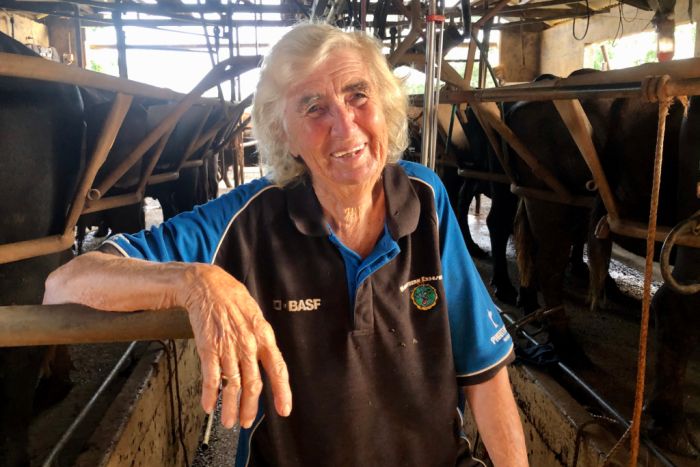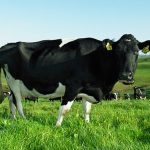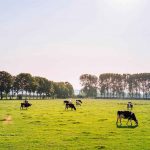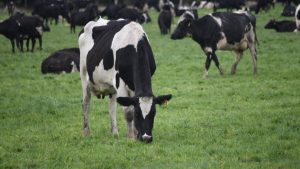
Key points:
Demand for buffalo milk and meat has crashed due to COVID-19
Cheesemakers are also suffering from restaurant closures
Consumers are being asked to help by eating Australian-made buffalo products
Orders from restaurants, cafes and cheesemakers have all but dried up since strict measures were introduced to prevent the spread of COVID-19 — and the premium market for buffalo meat has also been evaporating.
Every three days Mr Humphries opens the valves on his vat and pours milk through his paddocks into an effluent trap at Millaa Millaa, because his cows still need to be milked and, legally, raw milk cannot be given away.
“It’s just devastating,” Mr Humphries says, who owns Australian Dairy Buffalo Company.
He has called on consumers to help by seeking out Australian-made buffalo cheese and meat at supermarkets.
“It went from a product in demand to zero orders,” Mr Humphries said.
“I actually had orders on the road and my processors rang me up and said, ‘Don’t send them or turn them back’.”
He said after breeding buffalo cows for 20 years it was now likely he would need to “dispose” of his herd.
“We can only go on so long pouring milk out and having zero income — with all the costs associated with feeding the animals and running the dairy.”
Dairying with a difference
After dairy deregulation, Margaret Thompson and her late husband, Mal, swapped from milking Guernseys to building up a buffalo herd at Witta, in the Sunshine Coast Hinterland.
“It’s one of the healthiest products you can get,” Ms Thompson said.
“Lots of people who can’t drink ordinary milk can drink buffalo milk.”
The Maleny Buffalo founder used a Churchill scholarship to visit dairies overseas where buffalo cheese has been big business.
“In Italy they have big herds of buffalo,” Ms Thompson said.
“You can go to a big place there where they are all robotically milked and, if you go through the world, buffalo really are the animals of choice for everything.
“It’s a premium product.”
Restaurant closures devastate farmers
There are fewer than 10 buffalo dairies in Australia and most of those also sell buffalo for meat.
That is the side of Ms Thompson’s business that her son, Michael Thompson, had been successfully pursuing with the help of passionate chefs in cafes and high-end restaurants.
“We are a small operation so we need to be able to utilise every portion of the animal,” Mr Thompson said.
“We’ve had a number of local restaurants come on board … [and] have used us for many years.”
Now the business’s future is uncertain.
“We just have to play a wait-and-see game but I think we need to acknowledge that something’s wrong,” Ms Thompson said.
Australian Buffalo Industry Council president, Bryan Jans, runs Sunrise Plains buffalo dairy in Victoria’s South Gippsland and says prior to the pandemic things were looking good for the buffalo dairy and meat industry.
“There are a lot of things that have been worked on a lot of years which were really starting to come to fruition,” he said.
“We went through the CSIRO for halal slaughter of buffalo and on the cheese side the herds were starting to get to that size where it was good commercial scale.
“We’ve had a lot of awards with product, which has got it out into the face of the public and being accepted, not as a strange alternative, but actually as a real player in the agricultural sector.”
Industry lifeline needed
Concerned that some buffalo farmers would not survive the financial crisis, Mr Jans wrote to Federal Agriculture Minister David Littleproud, and asked for industry assistance.
The minister’s office told the ABC a team would follow-up his request for help.
A spokesperson said the industry could benefit from the billion-dollar regional package for business, agriculture and tourism impacted by COVID-19 and JobKeeper payments of up to $1,500 a fortnight, for self-employed business operators.
“Absolutely anything would be welcome,” Mr Jans said.
“I’m very worried about that and especially the quality of animals that have been bred all these years which could potentially end up being sent to the abattoirs.
“It’s just a waste of so much work and effort poured into it, so we will try and work as best as we can to try and limp through to the other side.”
























